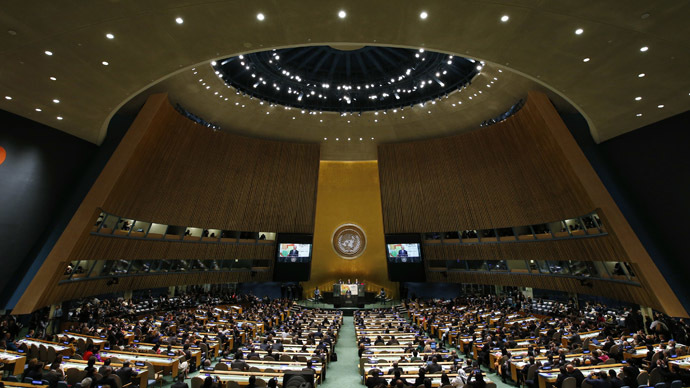Russian approach to international cooperation in climate issues

Several days ago (September 23) the UN climate summit was held in New York. It became another important step in the ongoing discussions of what is to be done to counter negative consequences of climate change.
The largest country in the world by territory, the Russian Federation plays important role in finding solutions to global and regional ecological problems. To this end, Russia has been actively participating in the international cooperation on climate issues and is leading in emission cuts. The cumulative reduction in emissions in the energy sector in Russia for the last 20 years equals the total emission volume for five years in the EU or three years in the US. Thanks to structural optimization and energy efficiency policies, the carbon intensity of the Russian GDP has fallen three-fold in 1990-2011.
Current government policies pursue low-carbon development. Following the Copenhagen Accord, our target is to decrease the energy intensity of the GDP by 13.5 percent by 2020. In 2013, a presidential decree set forth the national goal of cutting anthropogenic emissions of greenhouse gases by 25 percent by 2020 from 1990 level. In order to achieve this goal, an inventory system for GHG emissions is created, a system of state support for projects aimed at emission reduction is being put in place, pilot projects are getting ready for implementation, an emission regulation system is about to be introduced.
Increase in energy efficiency and the share of non-hydrocarbon fuels in energy generation is ensured through a number of new development strategies for various branches of economy and various regions for the periods ending in 2020 and 2030.
For instance, the share of motor biofuel in overall fuel consumption will grow by 8 percent by 2018. In cumulative agricultural, food and timber waste, the share of energy recovery will increase from 3 percent in 2012 to 80 percent in 2018.
It has been agreed that a new global climate agreement is to be reached in 2015. We believe that the agreement should be based on the principles established by the UNFCCC including the principle of common but differentiated responsibilities and respective capabilities. Commitments of developed and developing countries may be different, but at the same time, they should have equal status and be a subject to accountability.
Regarding possible commitments for the post-2020 period, we favor the ‘bottom-up’ approach, which means that countries should determine their commitments themselves. This requires setting a period covered by the new agreement. We hope this could be solved during the conference in Lima. Taking into account the economic and social development programs as well as the emission control measures, Russia is expected to stabilize its energy consumption and eventually to lower it after 2030. A long-term target for Russia could be limiting anthropogenic GHG emissions by 2030 at the level of 70-75 percent of 1990 volume.
We expect that the negotiations on a new global agreement will be constructive and based on respect of international law, and we are determined to contribute to their successful conclusion at the conference in Paris in 2015. According to WMO, the atmospheric concentration of GHG has hit record high. The time factor and scale of the problem demand urgent and collective action.
The statements, views and opinions expressed in this column are solely those of the author and do not necessarily represent those of RT.
The statements, views and opinions expressed in this column are solely those of the author and do not necessarily represent those of RT.













